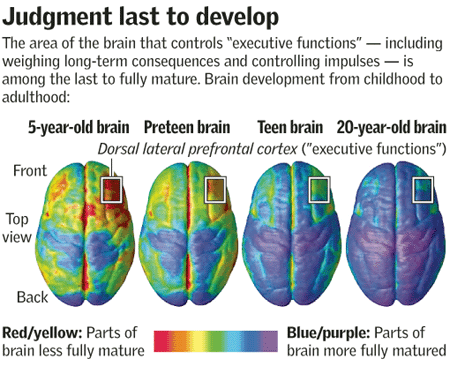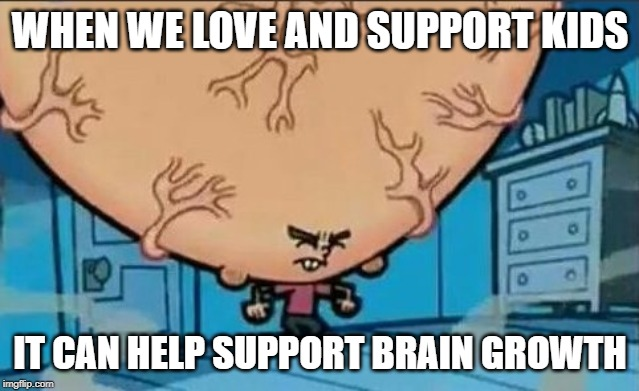 Sometimes, the universe converges so we hear the same phrase over and over again. I heard some version of this phrase at DWT, in classrooms, in meetings, overheard in hallways.
Sometimes, the universe converges so we hear the same phrase over and over again. I heard some version of this phrase at DWT, in classrooms, in meetings, overheard in hallways.
It was teachers, expressing frustration about their students. Saying some version of “they don’t value (or care about) education”. Sometimes it was about the kids’ parents or families.
And I totally get being frustrated with your students! I wish I could name all the kids who refused to do anything in my class. It sure looks like lack of caring, lack of value on education! But here’s four that stick out in my mind.
 Corey, who literally didn’t put pencil to paper all semester. He had an 8% in my class.
Corey, who literally didn’t put pencil to paper all semester. He had an 8% in my class.
Yasmin, who showed up to school so rarely, I had to look up her name when she finally did.
Jeremy, who just wanted to goof off and crack jokes all period. He really didn’t take class seriously and was a distraction to the rest of the class.
Brianna, who argued with anything and everything I said (or anyone else, really). She didn’t like the assignments or how I gave them or how I graded them -- so she wouldn’t do them.
 So frustrating!
So frustrating!
I keep thinking back about them and about the phrase I kept hearing this week, about kids who “don’t care about their education”.
Did I say that about Corey? About Yasmin? About Jeremy? About Brianna? I hope I didn’t. But maybe I did?
Did I actually think about the fact that their brains were in development and not fully “done” yet? That their impulse control and their problem solving skills were not fully formed and imperfect because of biology? Did I think that maybe I didn’t have a full picture of what’s going on in their lives? That while my housing and relationships are stable, maybe theirs are not?
 Did I actually presume to make judgments about their inner values based on their adolescent behaviors?
Did I actually presume to make judgments about their inner values based on their adolescent behaviors?
Oh dear god. I hope not.
Did I really know what was going on in their lives? Did I know that Corey had executive function struggles, especially with the“task initiation” part of executive function? Did I know that Yasmin’s mom was really sick and that Yasmin was skipping school to watch her little sister? Did I know that Jeremy lived with his mom but his dad had come back after being gone for a while and Jeremy was acting out because he didn’t know how he felt about Dad being back? Did I know that Brianna was acting tough and arguing with everyone because she was battling a bully? A bully that was making her feel awful about herself so she was making everyone around her feel awful too?
 All that was happening to hormone-uneven, social beings with issues. They’re not fully formed human brains. They're still developing. They don’t make good decisions because the parts of the brain involved in decision-making aren’t fully developed until they’re 25 or so. These kids are nowhere near 25! So of course they're going to make bad choices. It’s part of growing up, not a sign of poor values.
All that was happening to hormone-uneven, social beings with issues. They’re not fully formed human brains. They're still developing. They don’t make good decisions because the parts of the brain involved in decision-making aren’t fully developed until they’re 25 or so. These kids are nowhere near 25! So of course they're going to make bad choices. It’s part of growing up, not a sign of poor values.
It’s like asking an elementary school kid to dunk a basket on a regulation height hoop. Of course they can’t. They’re not done growing! They're not there yet, even if they’re trying.
Same with asking a 15 year old to consistently make good decisions. They can’t. They’re not done growing. They're not there yet, even if they’re trying.
 That doesn't mean we don't ask kids to make good choices and we don’t expect them to and we don't teach them how to and we don’t reinforce HOW TO make good choices. Of course we do!
That doesn't mean we don't ask kids to make good choices and we don’t expect them to and we don't teach them how to and we don’t reinforce HOW TO make good choices. Of course we do!
It means we don’t assume that poor choices on the kids’ part equate to poor values.
Poor choices equate to mistakes. Period.
I made poor choices when I was their age. You did too.
 A kid who skips school might value education just fine. She might just value not getting beat up by a bully that day even more. If I were in her shoes I might value the same priorities.
A kid who skips school might value education just fine. She might just value not getting beat up by a bully that day even more. If I were in her shoes I might value the same priorities.
A kid who doesn’t do any work might value education but not know how to start. It might be like how I avoid cleaning out my closet because it’s such a big task and I don’t know where to start. It’s called “task initiation” and it’s a real area of executive function. It’s not a problem with his values. It's a problem with his brain development. He might just need some accommodations. Sometimes, I don’t know where to start either. But I have developed strategies. He might not have those yet.
A kid going through something emotional will act out. So will I. I was a lousy teacher the year I got divorced, all those years ago. Because while I prioritized my job, my emotions got in the way and distracted me. And I even had a fully developed brain at the time!
(Remember being a teen and going through a break up and not knowing how to handle it because your brain wasn’t done growing and you didn't have experience to draw from? Ugh! That was so awful and heartbreaking!!)
So I hope I didn’t make judgments about my kids ... but I probably did, because none of us are perfect. I’ve been caught up in negative thinking, too. So I hope you don’t make the mistakes I did. I hope you don’t take the behavior of poor choices and emotions and partially-formed brains and called those “values” or “caring”.
 Instead, I hope you DO the caring. Remember that these are children. They don’t have your experience or your perspective or your stability or your fully-formed brain.
Instead, I hope you DO the caring. Remember that these are children. They don’t have your experience or your perspective or your stability or your fully-formed brain.
I hope you give them the love and support and caring in your class that will HELP THEIR BRAINS DEVELOP FURTHER AND BETTER. Honestly, not to simplify, but feeling safe and loved and supported is like a cast on a broken bone. It supports the brokenness and lets it heal and grow what and where it needs to safely without being further damaged.
Getting on their case regularly, yelling at them, or writing them up for not working -- it’s like bumping that broken bone. It doesn't let it heal.
Kids who struggle have hormones and emotional turmoil. They have social media drama that we didn't have. They have family problems we don’t know about. They have romance confusion we have forgotten about. They have executive functioning struggles and learning disabilities many of us don’t know as much about.

But 94% of them want to go to college. Most of them care about their education. But that other stuff gets in the way, just like my couch (or my last bout of being sick) gets in the way of my valuing my health and exercise. :)
How can you help them develop their brains and become stronger students? How can you work to see the caring behind all the crap they have to deal with? How can you bring that out of them in a positive way? I love to hear the amazing things you’re doing? Email me newmantr@pcsb.org